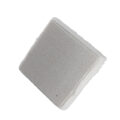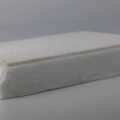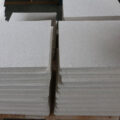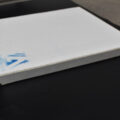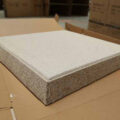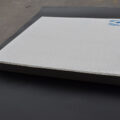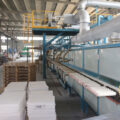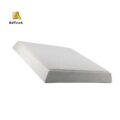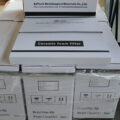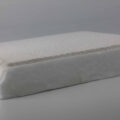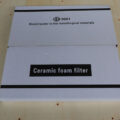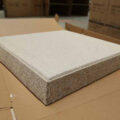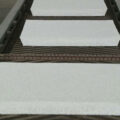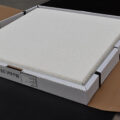Aluminum Ingot Foundry Filter is the third generation of porous ceramic filter newly developed after ordinary porous ceramic filter and honeycomb ceramic filter. Foam ceramic filter can form many small holes and many twists, and has many advantages such as high strength, high temperature resistance, good filtering, and adsorption performance.
The pore size of the ceramic foam filter is 4 to 28 holes per centimeter (10 to 70 holes per linear inch), which is equivalent to a hole with a diameter of about 0.036 to 0.26 cm. Ceramic foam filters are usually square, from 22.86 cm × 22.86 cm × 5.08 cm (9 in × 9 in × 2 inches) to 66.04 cm × 66.04 cm × 5.08 cm (26 in × 26 in × 2 inches).
The production of aluminum ingots for the production of high-quality aluminum products requires that molten aluminum be relatively free of inclusions, such as insoluble solids or insoluble liquid impurities. In order to ensure that the downstream processed ingots or billets meet the strict requirements for high-quality products, insoluble impurities or inclusions will be generated during the entire process of reduction, retention, alloying, and casting during the production of molten aluminum.
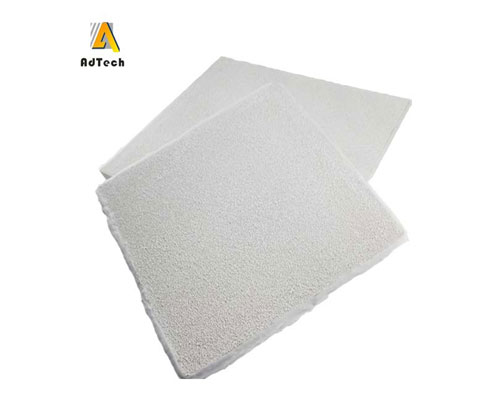
Advantages of Aluminum Ingot Foundry Filter
- Reduce waste associated with inclusions
- Reduce costs associated with inclusion defects
- Increase productivity by increasing extrusion or rolling speed
- Easy to replace alloys, improve casting flexibility
- No fixed metal
Ceramic foam filter has a gasket on the edges to help seat the filter in the filter box and ensure no metal bypasses the filter. There are different types of gasket available, fiber gasket, expandable gasket. Also, you can choose Alumina Ceramic Foam Filters without the gasket.
Filter efficiency is related to filter cell size. By carefully controlling cell size within the filter, a more consistent filtration performance can be achieved. Typically, removal efficiency increases as filter cell size and the metal velocity in the filter decrease.

